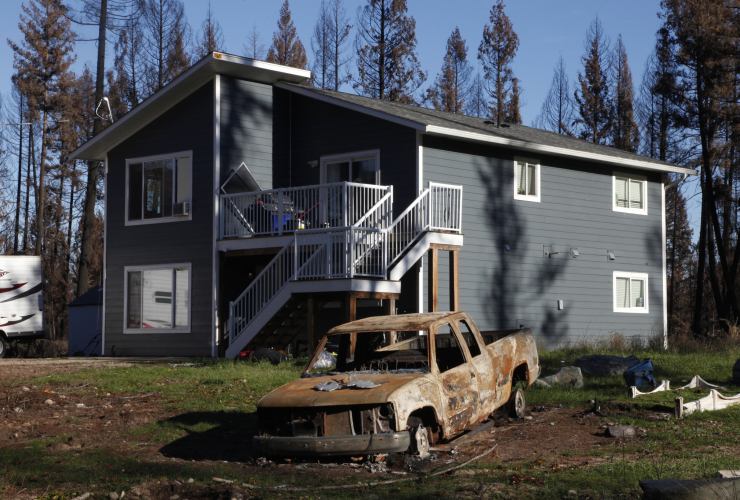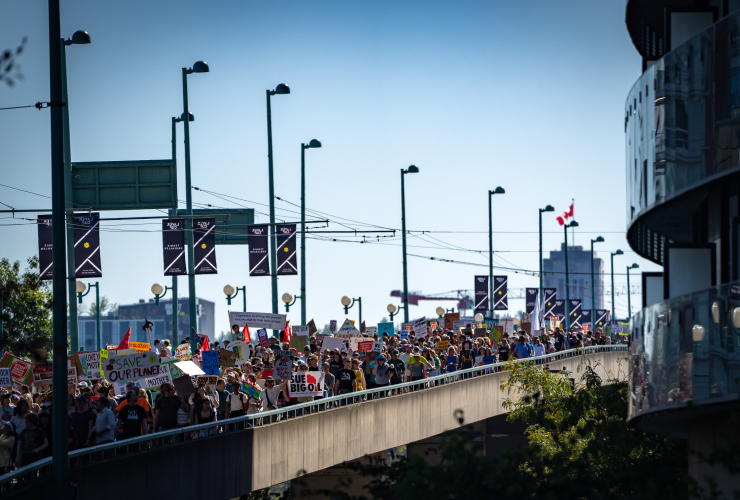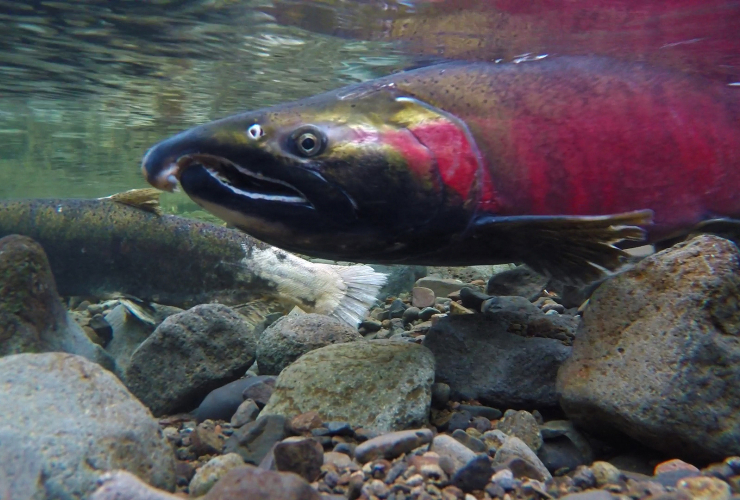Chris Hatch

Climate Correspondent | Vancouver
About Chris Hatch
Chris Hatch writes Canada's National Observer's celebrated Sunday newsletter, Zero Carbon. Chris is the former Executive Director of Rainforest Action Network as well as the former executive editor at Canada's National Observer. He is now a columnist at National Observer and writes the acclaimed Sunday newsletter, Zero Carbon.
Jasper and the great sadness
The sadness for Jasper is twinned with foreboding. Fires will keep getting worse until we eliminate climate pollution. The laws of physics are unmoved by the excuses of lobbyists and lawmakers.
Zooming off to jail for climate activism
Sentences for environmental activists set a new record for non-violent protest in the U.K, surpassing the three-year sentence given to another Just Stop Oil protestor who scaled the Queen Elizabeth II bridge over the Thames estuary.
The great hush
The PR pros will tell you not to bother talking about arcane topics like 1.5 degrees — no normies understand the significance, and it just sounds like a little-bitty thing, anyway. They’re probably right. And maybe that explains why we just lived through the first full year above 1.5 C with only perfunctory coverage by the global media.
The words that wreck the world
Genevieve Guenther, author of a new book, The Language of Climate Politics, highlights the six key terms that shape the language of climate change.
A fireside chat
If you focus on the kind of fires we’re worried about — the extreme fires — it’s clear that climate change is driving an exponential increase.
A moment of celebration for pristine old growth saved
Fast forward to 1993 and blockades had expanded to defend all intact areas of Clayoquot Sound. More than 800 people were arrested including this writer and environmentalist Tzeporah Berman, the woman who would later marry me on a summer solstice, at a remote beach on Vargas Island followed by a feast of Joe Martin-fire-smoked salmon.
Grief. What is it good for?
Not only do we grieve for the lost and the losses to come, we have been complicit. We are grieving what we’ve done and are still doing. Here are two steps toward healing.
Hope, in the face of climate change. Do we deserve it?
Many more people will admit eco-anxiety to pollsters, or their therapists, than are willing to give it voice among family and friends.
Sad but true, there is no way to reverse climate change
There is no way to make our climate crisis “go away.” So, what does it mean to speak of cures for an irreversible condition?
What would the salmon say?
Let's start with 'the water is too hot.' Salmon like 12 to 15 degrees. The heat compounds what’s known around the lab as 'the river gauntlet' — seine boats at the river mouth, habitat degradation upstream and now ever higher temperatures bringing new pathogens, disease and lethal stream water.











